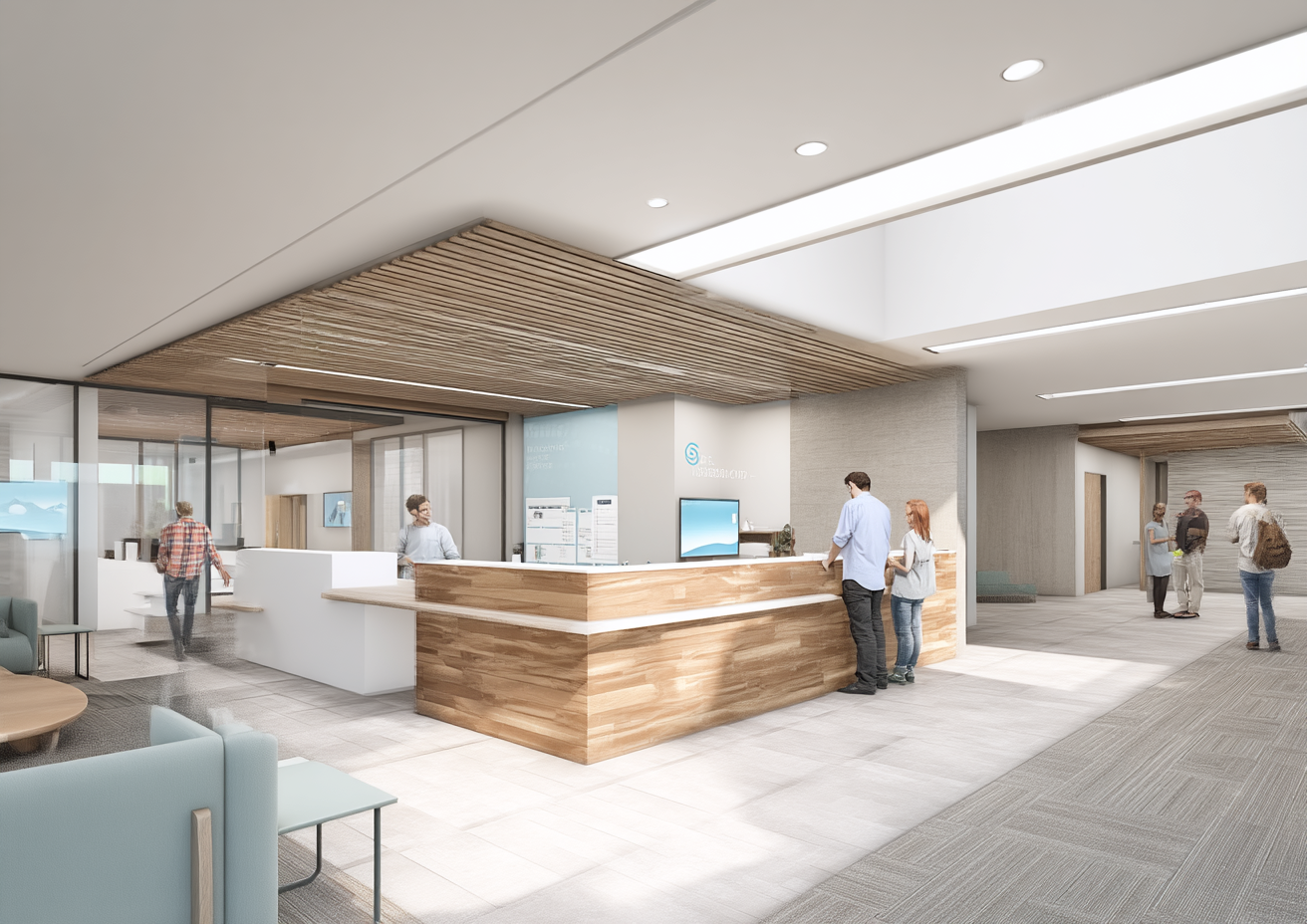Hiring the right Renal Dietitian (CSR) is essential for success in the Dialysis Centres industry. These professionals ensure that dialysis patients receive the nutrition they need to manage their health effectively. By recruiting top talent, businesses can improve patient outcomes and operational efficiency.
Why Hire a Renal Dietitian (CSR)?
Renal Dietitians (CSR) play a crucial role in enhancing the quality of care in dialysis centres. Their expertise significantly impacts patient health and operational effectiveness.
- Expert Nutritional Guidance: Renal Dietitians provide personalized dietary plans for patients on dialysis. This tailored approach helps manage symptoms and prevent complications, leading to better patient outcomes and satisfaction.
- Improved Patient Compliance: By working closely with patients, Renal Dietitians encourage adherence to dietary restrictions. This support reduces hospital readmissions and promotes overall health, which is vital for maintaining operational efficiency.
- Enhanced Staff Training: A Renal Dietitian can train existing staff on nutrition-related issues. This knowledge transfer ensures a consistent standard of care across the team, elevating the overall service quality.
- Effective Resource Management: By improving dietary practices, Renal Dietitians help dialysis centres manage resources better. They can identify cost-effective nutritional solutions that minimize waste while maximizing patient health.
- Compliance with Regulations: Renal Dietitians ensure that dietary practices meet healthcare regulations and standards. This compliance protects the facility from potential legal issues and enhances its reputation.
What Are the Types of Renal Dietitian (CSR)?
- Clinical Renal Dietitian: These professionals specialize in providing dietary advice to patients with kidney disease. They assess patients’ nutritional needs and tailor meal plans accordingly to address their unique health concerns.
- Outpatient Renal Dietitian: Working in outpatient settings, these dietitians help patients manage their diet before and after dialysis treatments. They focus on long-term dietary strategies to improve health outcomes.
- Dietitian for Inpatient Care: This type supports patients admitted to hospitals for dialysis. They collaborate with medical teams to create immediate dietary adjustments for hospitalized patients.
- Community Education Dietitian: These dietitians provide educational programs within the community to raise awareness about kidney health and nutrition. They empower patients through knowledge and resources.
- Research Renal Dietitian: Engaged in clinical research, these dietitians study dietary impacts on kidney health. Their findings can shape future dietary guidelines and patient care practices.
Where to Find Renal Dietitian (CSR)?
- Online Job Boards: Websites like Indeed and Monster allow organizations to post jobs and find candidates. However, unfiltered applications can lead to longer hiring times.
- Staffing Agencies: Staffing firms specialize in healthcare recruitment and can pre-vet candidates. Thus, they may require fees but often provide quick access to qualified candidates.
- Professional Networks: Utilizing networks such as LinkedIn enables direct outreach to qualified professionals. Thus, it can be time-consuming, and responses may vary.
- Referrals from Current Employees: Internal recommendations can help identify candidates who fit your culture. However, this method may limit diversity in hiring.
- Pulivarthi Group Services: We offer a streamlined process to find pre-vetted, skilled Renal Dietitians (CSR). This reduces hiring time and ensures you get qualified candidates tailored to your needs.
What Are the Challenges Faced While Hiring Renal Dietitian (CSR)?
- Assessing Technical Skills: It can be difficult to accurately gauge the dietary knowledge of candidates. Thus, this can lead to hiring underqualified staff, impacting patient care.
- Cultural Fit: Ensuring that the new hire shares your organization’s values and work ethic is crucial. So, a poor cultural fit can lead to low morale and high turnover rates.
- Managing High Turnover: The dietetics field often experiences high turnover. This can disrupt patient care continuity and increase staffing costs over time.
- Staying Updated on Trends: Nutrition guidelines and best practices for dialysis patients continuously evolve. Finding candidates who keep up-to-date with these changes is critical but challenging.
- Balancing Experience and Skills: Candidates may have extensive experience but lack specific skills related to renal dietetics. This misalignment can lead to ineffective patient care.
What Qualifications and Licenses Must a Renal Dietitian (CSR) Have?
- Bachelor’s Degree in Dietetics: A foundational requirement, this degree ensures that candidates have a solid understanding of nutrition science, which is essential for effective patient care.
- Registered Dietitian Nutritionist (RDN) Credential: This certification demonstrates a dietitian’s ability to provide safe and effective dietary care, indicating adherence to industry standards.
- State Licensure: Many states require dietitians to obtain a license to practice. This ensures that dietitians meet local regulations and provide safe care.
- Specialized Training in Nephrology: Courses or certification in nephrology are essential for understanding the unique needs of dialysis patients, impacting patient outcomes positively.
- Experience in Clinical Settings: Practical experience in dialysis units or hospital settings is vital. It equips dietitians with real-world knowledge to manage patient needs effectively.
Sample Renal Dietitian (CSR) Job Description
Job Overview: A Clinical Renal Dietitian (CSR) develops and manages nutritional care plans for dialysis patients. Key Responsibilities: Assess patient nutritional needs; create tailored meal plans; educate patients and staff on renal diets. Required Skills: Strong communication, analytical skills, teamwork, and knowledge of renal nutrition guidelines. Qualifications: Bachelor’s Degree in Dietetics, RDN credential, and relevant clinical experience.
Renal Dietitian (CSR) Interview Questions: What to Ask Renal Dietitian (CSR) at the Interview
- What experience do you have with renal dietary management? This question assesses their hands-on experience in the dialysis setting and understanding of patient needs.
- How do you develop nutrition care plans for patients? This evaluates their approach to personalized care and their critical thinking skills.
- Can you describe a challenging patient case and how you handled it? This question helps gauge their problem-solving abilities and adaptability in the face of challenges.
- How do you stay updated on nutrition guidelines for dialysis patients? This shows their commitment to continuous learning and staying current with industry standards.
- What role do you believe education plays in patient compliance? This assesses their understanding of patient education’s impact on health outcomes and adherence to dietary advice.
When Should I Hire a Renal Dietitian (CSR)?
Organizations should consider hiring a Renal Dietitian (CSR) during peak project demands, such as when opening a new dialysis unit or expanding services. Hiring becomes essential when there are gaps in staff skill sets, ensuring that patient care remains high-quality and efficient. Additionally, during periods of high patient volume, a Renal Dietitian can help manage dietary needs more effectively.
How Can I Test Renal Dietitian (CSR) Skills?
- Conduct Role-Specific Assessments: These assessments can simulate real-world scenarios to evaluate their practical skills in dietary management for renal patients.
- Assign Real-World Tasks: Providing tasks similar to those they’ll encounter on the job allows you to measure their effectiveness and problem-solving capabilities in a realistic setting.
- Review Past Project Outcomes: Discussing previous roles and their impact on patient care can reveal the candidate’s experience and contributions to successful nutritional strategies.
- Conduct Case Studies: Present candidates with hypothetical patient cases and evaluate their responses. This will help you understand their analytical and critical thinking skills.
How to Conduct an Effective Cultural Fit Assessment for Renal Dietitian (CSR)?
- Ask Situational Questions: Inquire how candidates would respond in specific scenarios. Their answers can reveal their values and alignment with your organization’s culture.
- Review Alignment with Company Values: Discuss your organization’s core values and see how candidates relate to them. This alignment is crucial for long-term team cohesion.
- Involve Team Members in the Interview Process: Allowing existing team members to participate in interviews can provide deeper insights into a candidate’s fit with the team dynamic.
- Assess Communication Styles: Observing how candidates communicate during interviews can indicate their compatibility with your work environment and team interactions.
What Is the Average Salary of a Renal Dietitian (CSR) in the US?
The average salary for a Renal Dietitian (CSR) in the U.S. ranges from $60,000 to $80,000 annually, influenced by experience, location, and facility type. Higher salaries are often found in metropolitan areas where the demand for skilled dietitians is greater. Industry trends indicate competitive compensation packages to attract top talent in the healthcare sector.
What Are Some Renal Dietitian (CSR)-Specific SOPs, and How to Create Them?
- Nutrition Assessment SOP: This document outlines the steps for assessing patient nutritional needs. It ensures consistency in evaluations and aids in developing tailored dietary plans.
- Meal Planning SOP: This SOP guides dietitians in creating meal plans based on patient needs and preferences. It provides clarity on appropriate dietary adjustments.
- Patient Education SOP: This outlines the methods for educating patients on renal diets. Consistency in education helps improve patient compliance and understanding.
- Follow-Up and Monitoring SOP: This document outlines the process for regular follow-ups. Continual monitoring assures that dietary plans remain effective over time.
How to Retain Renal Dietitian (CSR) Effectively?
- Offer Competitive Benefits: Providing attractive salary packages and benefits is key to retaining top talent. Employees are more likely to stay at a job that values their contributions financially.
- Foster a Supportive Work Environment: Creating a positive workplace culture can significantly improve job satisfaction. Supportive teams help employees feel valued and engaged.
- Provide Professional Development Opportunities: Investing in continuing education and professional growth helps dietitians feel invested in their careers. This can lead to increased loyalty to your organization.
- Encourage Work-Life Balance: Promoting a healthy work-life balance can reduce burnout. Employees who feel balanced are happier and more productive.
Hire Renal Dietitian (CSR) with Pulivarthi Group
Choosing Pulivarthi Group as your staffing partner ensures access to pre-vetted, skilled Renal Dietitians (CSR) who can make a difference in your dialysis centre. Our efficient recruitment process helps you save time and costs while achieving your staffing goals. Let us help you enhance your care facilities with top talent.




